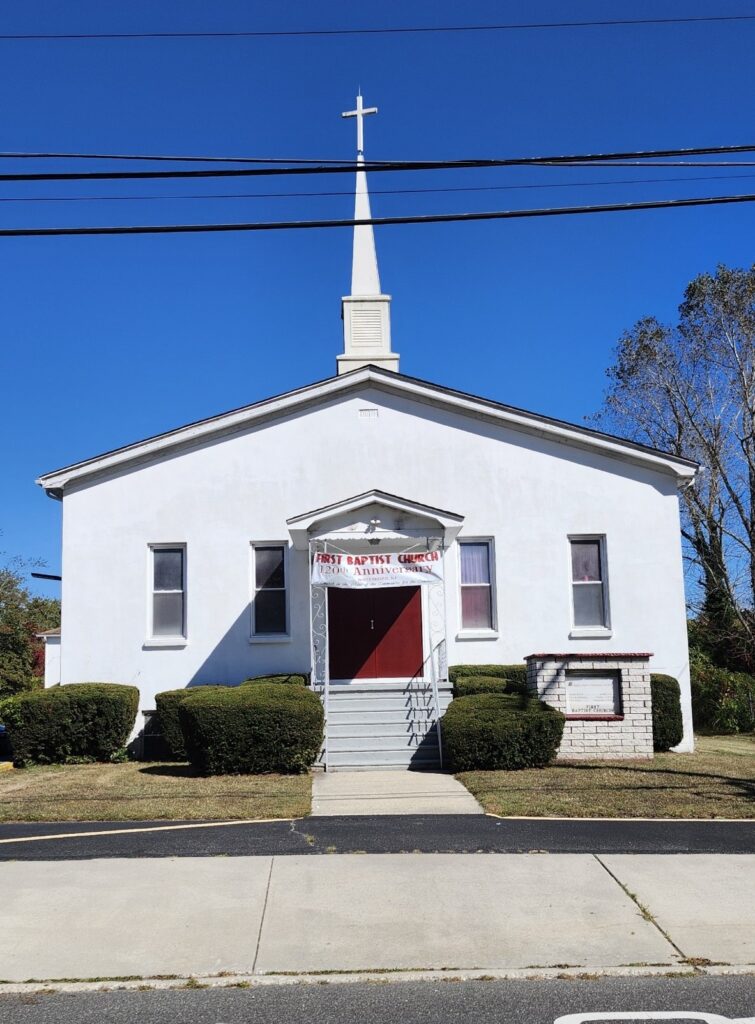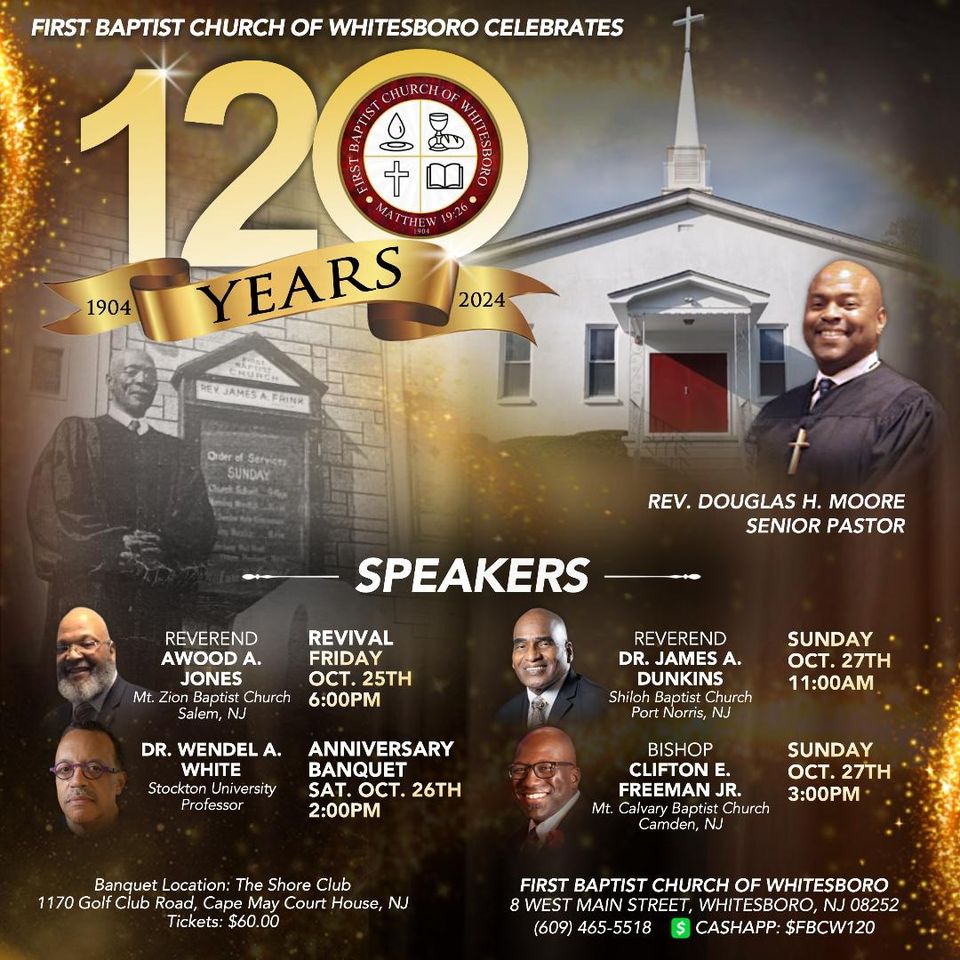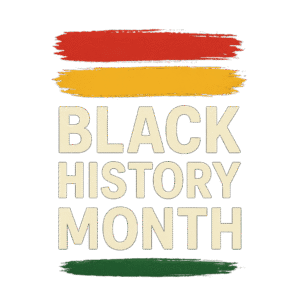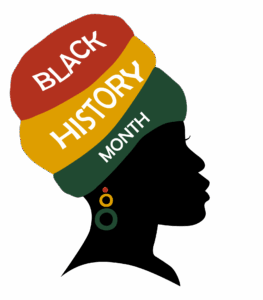Historic First Baptist Church of Whitesboro To Celebrate its 120th Anniversary

Image of First Baptist Church of Whitesboro by Rev. Douglas Moore.
BY JEWEL JUSTICE | AC JosepH Media
WHITESBORO — The historic First Baptist Church of Whitesboro, in Middle Township of Cape May County, is celebrating its 120-year anniversary on the last weekend of October.
It will be a three-day event, featuring several guest speakers and celebrating the church and first roots of the Black community in South Jersey. There is a revival service on Friday, Oct. 25, an anniversary banquet at The Shore Club on Saturday, and two services on Sunday.
The church stands as Whitesboro’s oldest institution, originally opening in 1904.
“[This] is an important benchmark in the history of the church [and also] the community of Whitesboro,” Rev. Douglas H. Moore, the senior pastor, said.
The historically all-Black “colony” of Whitesboro was founded in the early 1900s, through the combined efforts of the African-American Equitable Industrial Association, members of the AME Zion Church in Cape May City, and investors from the South, notably Congressman George H. White and Booker T. Washington.

“It wasn’t called a town — they called it a ‘colony,'” Felicia Simmons, local community organizer and supporting partner of the Whitesboro Historic Preservation Project, said. “It was modeled after the colony of Woodbine, one of the first Jewish colonies in the country…right next door to Whitesboro. It was modeled to be completely independent.”
Whitesboro History
Whitesboro is one of the 60-plus all-Black towns established in the United States after the Civil War. White, the leading investor whom the town was named after, was also an attorney and advocate for Black progress. Representing North Carolina’s Second District, White was the last formerly-enslaved person to serve in Congress.
“In a lot of his speeches…he was talking about not needing anything but for [White people] to, pretty much like Rev. Al [Sharpton] said, ‘get your knee off our neck,'” Simmons said. “We’ve become doctors, we have hospitals, we have schools — we’ve done this on our own.”
Whitesboro was founded with the goal to create a place of refuge, where African Americans could escape the racism they were experiencing in Cape May and in the South. Shares of land were sold to Black people from Virginia, North Carolina, and South Carolina in particular.
“Their ads were $50 for this plot and even if you [fell] behind or something happened, if it’s a good reason, [you could] catch up,” Simmons said. “It was a real cure.”
Founded in 1904
The First Baptist Church of Whitesboro was also founded in 1904 with a similar mission.
“The fact that Whitesboro was founded as an intentionally planned community for African Americans…[is] very special,” Moore said. “Even in the fact that the church is named ‘First,’ because usually in most communities, the First Baptist Church is a White church.”
Moore joined the church in 2021 after he and his wife moved back to Whitesboro, his wife’s hometown. They intended to serve as ministers, but after the senior pastor at that time offered Moore his position, he took over in 2022.
“They had a vote, and I became the pastor elect, and then a year later I became the pastor,” Moore said. “Not necessarily what I expected. [But] God doesn’t work according to our plans and our great ideas.”
A former teacher of African American history and a resident of Whitesboro for 30 years, respectively, Moore and his wife Angela Moore are committed to preserving both the church and Whitesboro’s history.
“Our mission is threefold,” Moore said. “One, we have to document the information. Two, we have to educate the community, especially the remaining Black community, on the importance of doing that work. And three, [we have to get] them to partner with us in some way, shape or form to do that work of historical preservation.”
Partnerships
The church has partnered with many organizations, including the Whitesboro Historical Preservation Project, Big Brothers Big Sisters of South Jersey, and the Coalition Against Rape and Abuse (CARA). In these efforts, they aim to provide support to the community.
“Within the context of sharing the gospel, you have to do [work] outside of the church,” Moore said. Outreach and community building is essential — people have suffered and endured degrees of trauma. And we also want to represent the church as a place where you can work through [that] trauma.”
Coinciding with community efforts, Whitesboro needs support from the Township to protect its people and history.
“You need some allies in local government that will come alongside you and not necessarily side with developers or anybody who may want to erase things that may be deemed important or sacred,” Moore said.
Unfortunately, that has not been the case, and the state of the town has suffered because of it.
“The pocket of poverty benefits Middle Township greatly,” Simmons said. “It benefits them [in terms of] resources and everything else, but they don’t turn [the resources] back over to the community.”
A town that was once thriving, Whitesboro now has minimal permanent resources and establishments available to support the community.
“It’s actually less developed than in the 1920s,” Simmons said. “It’s literally taxation without representation. [Middle Township] gut [residents] financially. The roads aren’t paved. They took down the train station. The big high school, they tore down. There’s one schoolhouse left. They’ve taken away their post office and given them a different postal address that’s shared with the courthouse, so if you ask for an ambulance to come, it’ll go to the wrong space.”
Moore and previous church leaders have felt the effects of this neglect from the local government in their congregation. Their church membership has declined over the years.
“It’s difficult,” Moore said. “We’re a small church. It wasn’t always that way. But as excessive generations have moved out of Whitesboro, the African American population has shrunk significantly, and even though it’s a small town in…a rural space, Whitesboro has been gentrified.”
The lack of support from the township and various attempts from external sources to erase the history further demonstrates the need for Whitesboro’s community to stay engaged.
‘Engaged’ Community
“[The community has] been engaged from the time we said go,” Simmons said. “We have monthly meetings [on Fridays]. We [have] had events, rallies, and conversations.”
Active members of the community have done all they can to preserve Whitesboro’s Black history, including Simmons and the Moores, as well as Bobby Harrison, owner of Whitesboro Historical Museum, Shirley Green, Vice President of Cape May County’s NAACP Branch Clayton Palmer, and social justice advocate Elorm Ocansey.
The Whitesboro Historical Preservation Project, an organization active in the struggle to keep Whitesboro’s history alive, stated that their goal is to incorporate the town as a borough because of the autonomy it would grant Whitesboro.
The First Baptist Church, too, according to Rev. Moore, is “working with the Cape May County Historical and Genealogical Society to document and digitize as many records and documents [they] have that are related to the history of the church.”
Having faced opposition, the community still has much work ahead of them. This effort to maintain Whitesboro’s history requires ongoing, collective action.
The 120-year celebration of the First Baptist Church of Whitesboro, consequently, symbolizes a larger purpose: it shows that, although hit hard, the community remembers Whitesboro’s history and is here to stay.
“Our church motto is ‘the church in the heart of the community, for the heart of the community,” Moore said. “We have to really do our due diligence in terms of preserving history and documenting history.”
Follow Us Today On:
Note from AC JosepH Media: If you like this story and others posted on Front Runner New Jersey.com, lend us a hand so we can keep producing articles like these for New Jersey and the world to see. Click on SUPPORT FRNJ and make a contribution that will go directly in making more stories like this available. Thank you for reading!




